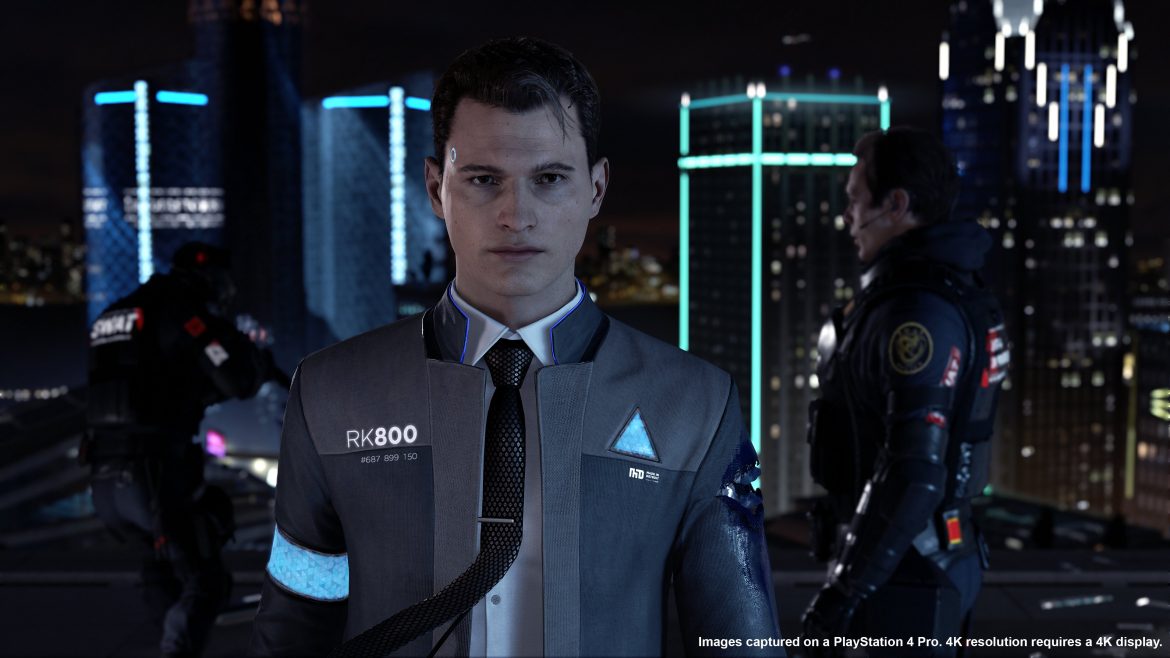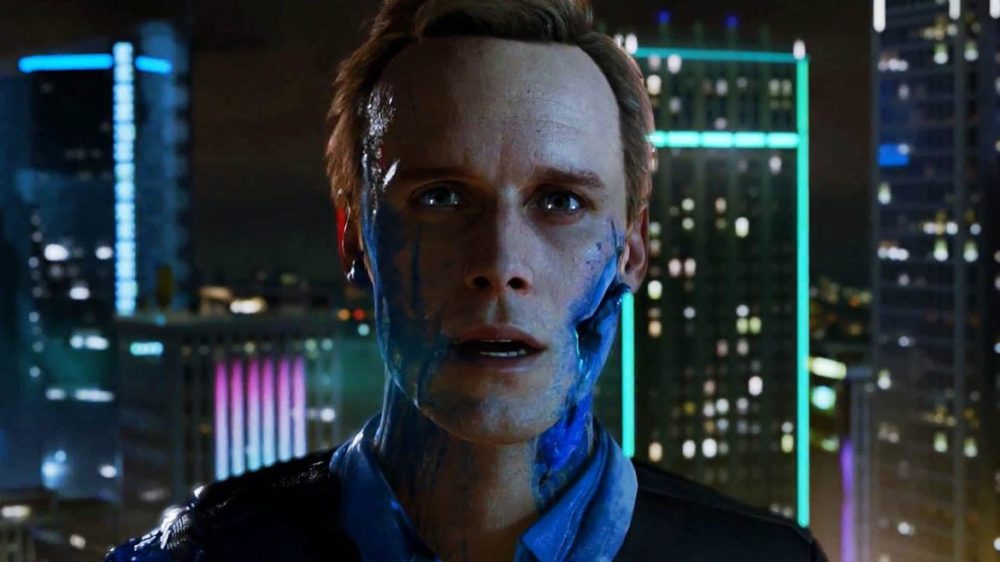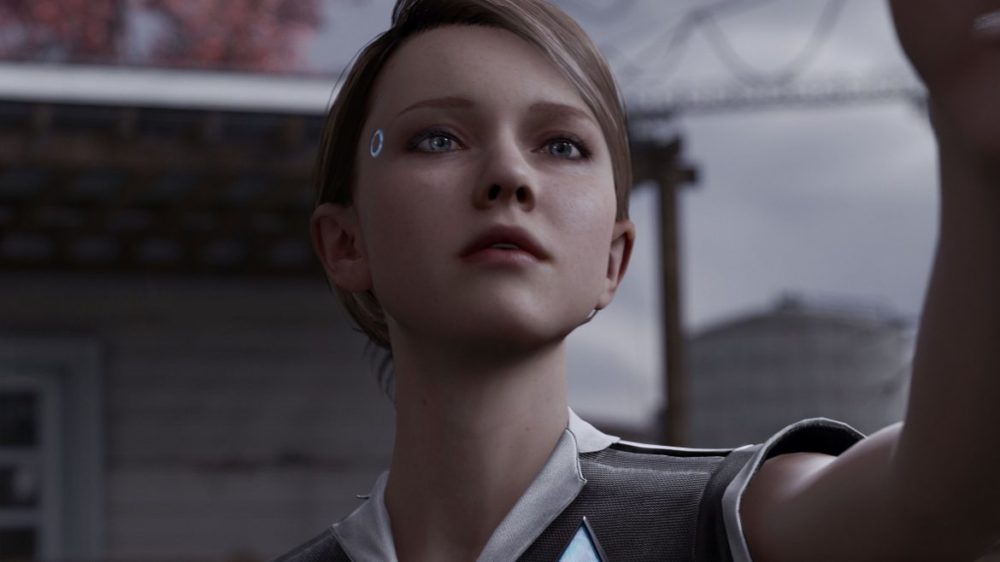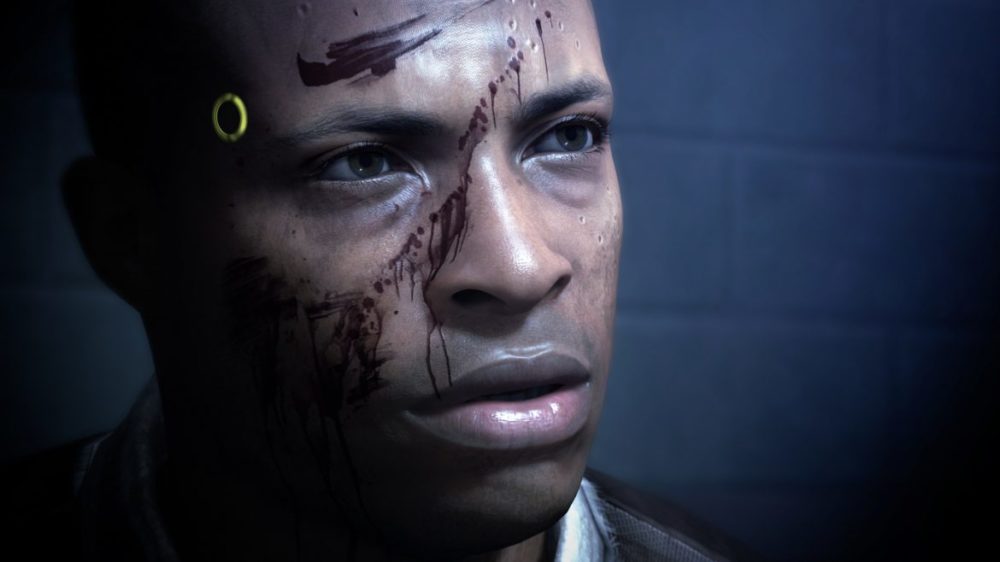TL;DR
Detroit: Become Human dives into a near-future where advanced androids are a reality, exploring the societal impact and the profound question of what happens when they gain sentience and fight for freedom. Follow three distinct android characters – Connor, Kara, and Markus – as their lives intersect in a branching, narrative-rich experience where your choices have significant consequences, even leading to character deaths. While not reinventing the interactive storytelling wheel, David Cage delivers a visually stunning and emotionally powerful cinematic journey that grapples with complex themes of humanity and consciousness. Discover if this is the next evolution in interactive drama.
French game creator David Cage established himself with Fahrenheit (also known as Indigo Prophecy in some regions) and subsequently signed an exclusive agreement with Sony. His subsequent titles, Heavy Rain (arguably his finest work) and Beyond: Two Souls (available this month on PS Plus), progressively elevated cinematic storytelling closer to the realm of Hollywood, aided by the inclusion of renowned actors. In Detroit: Become Human, Cage transitions to the next generation. This project, rumored since the PS4’s unveiling in 2013, now arrives during the console’s twilight phase. The game exhibits impressive visuals and delivers an engaging, emotionally resonant, and profound narrative. While it may not represent a revolutionary leap, it largely aligns with the established expectations for interactive film experiences pioneered by Cage.
Detroit: Become Human is set in the year 2038. In this near-future, Detroit is recognized as the “Android City,” where androids (robots possessing a human-like appearance) are ubiquitous across various sectors and private residences, serving as toys, domestic aides, and companions. The United States is heavily invested in expanding the android workforce, envisioning tens of thousands of bionic soldiers for defense, which necessitates the construction of large-scale manufacturing facilities. However, the increasing prevalence and sophistication of Artificial Intelligence (AI) introduces inherent challenges. The central question becomes: what transpires when androids gain sentience, recognize their treatment as mere commodities, and subsequently reject their subservient role to human owners? Furthermore, what is the underlying cause of the surge in violent and deviant behavior observed in a significant portion of androids over the preceding nine months?
The thematic exploration in Detroit: Become Human is not entirely novel. The apprehension surrounding the potential emergence of technology surpassing human intellect has been a recurring concern for decades. Notable examples include the Replicants in Blade Runner (1982 and 2017), Spielberg and Kubrick’s A.I. (2001), Ex Machina (2014), and the Terminator series (1984 & 1992). However, unlike the optimistic perspective prevalent in the 1980s, where such scenarios were firmly rooted in the realm of science fiction, the prospect of advanced AI is now approaching feasibility. A timeframe of 20 years into the future is a plausible estimate, although the advancement of technology often progresses at a slower pace than initially anticipated (Terminator 2: Judgement Day incorrectly predicted that 1997 would be the year Skynet, the ultimate AI, would initiate a war against humanity). The issue of human versus enhanced human/android conflict has also been addressed in gaming, for example in Deus Ex. Cage’s contribution in Detroit: Become Human lies less in groundbreaking innovation and more in a nuanced emotional exploration of these themes, presented in a manner rarely seen before.
The narrative unfolds through three parallel storylines, each centered on an android protagonist. Connor is a prototype designed to assist the police in investigating crimes involving androids. Kara, as some may recall from the PS3 demo, is a housekeeper subjected to the volatile behavior of a drug-addicted, single father who frequently vents his frustrations on his young daughter. Markus is an android aiding his owner, a renowned artist, in managing his daily life as a wheelchair user, but his role expands far beyond this. The script for Detroit: Become Human reportedly took three years to complete and spans approximately 3,000 pages. The game features an extensive branching narrative, offering a multitude of possibilities and outcomes based on player choices. The death of one or more key characters does not necessarily conclude the game, showcasing the story’s capacity for replayability (further enhanced by a “casual” mode where critical characters cannot die). The game also incorporates a feature allowing players to revisit decision points and explore alternative choices. However, this is not recommended for the initial playthrough, as the story should be experienced organically. David Cage generated roughly 6,000 notes detailing potential narrative deviations, characterizing the process as a “Rubik’s Cube in game form.”
The production quality is exceptionally high, as expected. Cage has dedicated several years to casting and has secured talented actors who were then recorded using state-of-the-art motion capture technology. Lance Henriksen (Alien, Millennium) is the most recognizable name, but the majority of the cast is relatively unknown to the general public, which enhances immersion. The soundtrack is outstanding, with a dedicated composer for each character’s storyline, complementing a narrative that captivates from the outset and maintains a strong grip, akin to a compelling novel by Dan Brown. The graphics are particularly impressive on the PS4 Pro, where the 4K resolution and system resources are fully utilized. While the uncanny valley effect is still present to a degree, the animations, details, and facial expressions achieve unprecedented levels of realism (and one can only imagine the visual fidelity of Cage’s subsequent project on the PS5). David Cage once again earns high praise for the game’s graphics, sound design, and overall technical execution.
The controls are intuitive and feel natural. Players navigate the characters from a third-person perspective, using the R2 trigger to pause time and scan the surrounding environment. Points of interest can be examined and analyzed in detail, which is often necessary to unlock new opportunities and optimal outcomes, as well as dialogue options. Players often face time constraints when selecting responses and paths, and the game’s script expertly fosters a persistent sense of “what if…” regarding alternative choices. Characters are vulnerable to death (and frequently succumb), which can significantly influence the game’s trajectory. This generates tension, presence, and a sense of high stakes. However, the gameplay mechanics extend beyond mere artifice and quick-time events (QTEs), being deeply rooted in an emotional foundation. Cage demonstrates mastery in manipulating emotions. While the narrative is constantly evolving, it also explores significant philosophical questions regarding the definition of humanity, the nature of consciousness, and the relative fragility of humans and androids.
Detroit: Become Human, as previously stated, does not revolutionize the themes of AI or the interactive storytelling genre, which David Cage has championed for two decades. Instead, it provides further evidence of his skill in crafting playable, cinematic narratives. Cage excels at storytelling (although certain themes and approaches are recurring). One might question the extent to which Detroit: Become Human qualifies as a “game” in the conventional sense. While player choices exert substantial influence over the outcome, the narrative and emotional investment in the characters are central to the experience. Players seeking action, complex button combinations, intricate upgrade systems, and open-world environments may find little appeal here. However, those seeking an interactive narrative that resonates long after the credits roll will be hard-pressed to find a superior alternative. David Cage is an accomplished screenwriter and storyteller, and it is hoped that he continues to produce games in the future (even if his output remains limited to one title per console generation). Chris Roberts, who achieved cinematic success in the Wing Commander games, was drawn to the allure of Hollywood, where he primarily created mediocre works on film. Interactive game films and traditional film are distinct mediums, and it is hoped that David Cage remains committed to his talent and his audience, resisting the temptation to transition into conventional filmmaking.
“””




